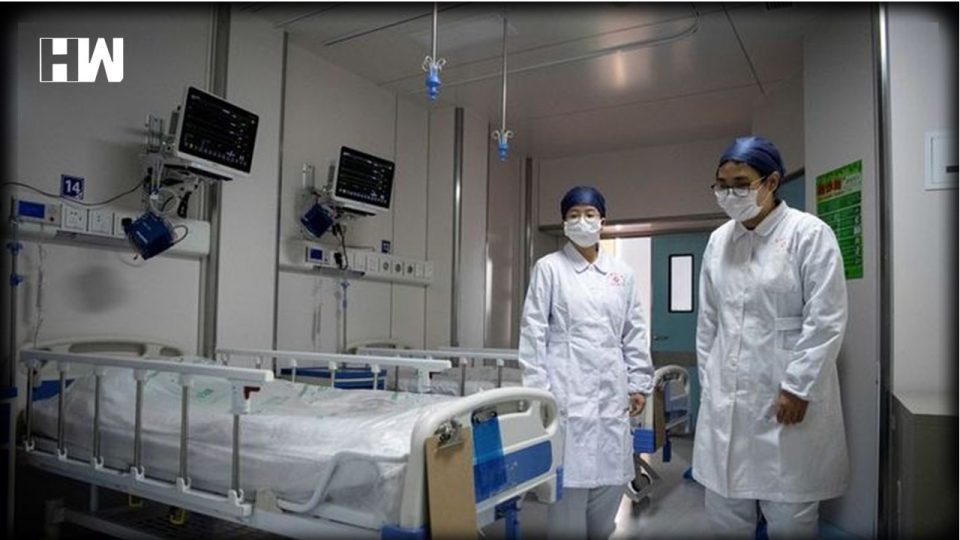The Resident Doctors’ Association (RDA) of Safdarjung Hospital have denied shortage of protective gear and masks in the hospital.
New Delhi| Shortage of protective gears was reported in the media citing an RDA letter that claimed the Safdarjung hospital, a nodal facility for treatment in the national capital that had been converted into a COVID-19 centre recently, required N95 masks and other protective gear for doctors and other staff.
Speaking to HW News, Dr Manish, Safdarjung RDA President, said, “We have sufficient personal protective equipment (PPEs) at the hospital for healthcare workers.”
Manish said, “The letter was for non-profit organisations that had shown interest in donating masks and protective gear. To facilitate that, the numbers of equipment had been issued.”
The letter read: “This is to draw your kind attention that we, the resident doctors of Safdarjung Hospital along with other healthcare workers, are battling the COVID-19 pandemic. Safdarjung Hospital is the nodal centre for treatment, isolation and quarantining COVID-19 patients in Delhi.”
“We have approx 500 faculty members, 1,700 resident doctors and 2,000 nursing staff. Also, the 807-bed super-speciality block (SSB) has recently been converted into the COVID-19 block. The administration is trying its best to procure protective equipment and consumables, but the demand is surpassing the supply,” the letter read.
Also Read: Despite WHO Guidelines, India Didn’t Stockpile PPE
The letter further reads says that the hospital is in dire need of 50,000 PPE Kits (Hazmat Suits), 50,000 N95 Masks, 3,00,000 three-layer masks and 1000 Hand Sanitizer bottles (500 ml).

“More than 50 doctors alone have reportedly been infected. These include several who were not treating coronavirus patients. Hospitals are giving personal protection equipment only to staff in corona(virus) wards. Others who may be involved in screening or are simply working in facilities where they are exposed to heavy viral loads from patients do not have PPEs,” Dr Harjit Bhatti, national president of the Progressive Medicos and Scientists Forum, told The Telegraph
“Because of this heavy viral load, out of every 100 medical personnel who are affected, 15 become critically ill,” he said. He said the corresponding figure for the general public was “5 per cent”.
On 19th March, the Indian government issued a notification banning the export of PPE manufactured in India. This decision came three weeks after WHO instructed countries that there might be a disruption in the supply of PPE.
After India saw its first patient of Covid-19 on 31st January, the government’s directorate general of foreign trade issued a notification to restrict the export of all PPE. But within a week, the order was amended. The government allowed to export surgical masks and gloves. By the end of February, when Italy was witnessing phase one of the transmission reporting 11 deaths and over 200 infections, India further relaxed the ban and allowed the export of 8 new items of PPE.
In India’s two biggest states — Uttar Pradesh and Maharashtra that have nearly a thousand cases between them — health officials admitted to a shortage of PPE, saying that private companies had expressed their inability to provide the kits early because of an increase in demand. This is because of a sudden increase in cases, the officials, who spoke on condition of anonymity, said.
“Only 20 to 30% of around 55,000 to 60,000 health workers have been provided with proper kits in the state,” said MP’s health department employees’ association leader Laxminarayan Sharma.
Estimating a spike in demand for personal protective equipment and diagnostic kits in the fight against COVID-19, the central government has calculated that the country will require about 27 million N95 masks, 15 million PPEs, 1.6 million diagnostic kits, and 50,000 ventilators in next two months, The Indian Express has learnt.
It’s absolutely clear that India didn’t foresee the grave situation it could land in, even after the WHO guidelines. India is now making many doctors and health workers go to their job without safety gears.
As an independent media platform, we do not take advertisements from governments and corporate houses. It is you, our readers, who have supported us on our journey to do honest and unbiased journalism. Please contribute, so that we can continue to do the same in future.

